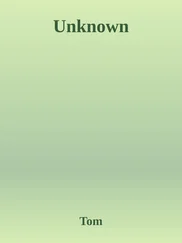Michael Ondaatje - The English Patient
Здесь есть возможность читать онлайн «Michael Ondaatje - The English Patient» весь текст электронной книги совершенно бесплатно (целиком полную версию без сокращений). В некоторых случаях можно слушать аудио, скачать через торрент в формате fb2 и присутствует краткое содержание. Жанр: Старинная литература, на русском языке. Описание произведения, (предисловие) а так же отзывы посетителей доступны на портале библиотеки ЛибКат.
- Название:The English Patient
- Автор:
- Жанр:
- Год:неизвестен
- ISBN:нет данных
- Рейтинг книги:4 / 5. Голосов: 1
-
Избранное:Добавить в избранное
- Отзывы:
-
Ваша оценка:
- 80
- 1
- 2
- 3
- 4
- 5
The English Patient: краткое содержание, описание и аннотация
Предлагаем к чтению аннотацию, описание, краткое содержание или предисловие (зависит от того, что написал сам автор книги «The English Patient»). Если вы не нашли необходимую информацию о книге — напишите в комментариях, мы постараемся отыскать её.
The English Patient — читать онлайн бесплатно полную книгу (весь текст) целиком
Ниже представлен текст книги, разбитый по страницам. Система сохранения места последней прочитанной страницы, позволяет с удобством читать онлайн бесплатно книгу «The English Patient», без необходимости каждый раз заново искать на чём Вы остановились. Поставьте закладку, и сможете в любой момент перейти на страницу, на которой закончили чтение.
Интервал:
Закладка:
IX
The Cave of Swimmers
I PROMISED to tell you how one falls in love.
A young man named Geoffrey Clifton had met a friend at Oxford who had mentioned what we were doing. He contacted me, got married the next day, and two weeks later flew with his wife to Cairo. They were on the last days of their honeymoon. That was the beginning of our story.
When I met Katharine she was married. A married woman. Clifton climbed out of the plane and then, unexpected, for we had planned the expedition with just him in mind, she emerged. Khaki shorts, bony knees. In those days she was too ardent for the desert. I liked his youth more than the eagerness of his new young wife. He was our pilot, messenger, reconnaissance. He was the New Age, flying over and dropping codes of long coloured ribbon to advise us where we should be. He shared his adoration of her constantly. Here were four men and one woman and her husband in his verbal joy of honeymoon. They went back to Cairo and returned a month later, and it was almost the same. She was quieter this time but he was still the youth. She would squat on some petrol cans, her jaw cupped in her hands, her elbows on her knees, staring at some constantly flapping tarpaulin, and Clifton would be singing her praises. We tried to joke him out of it, but to wish him more modest would have been against him and none of us wanted that.
After that month in Cairo she was muted, read constantly, kept more to herself, as if something had occurred or she realized suddenly that wondrous thing about the human being, it can change. She did not have to remain a socialite who had married an adventurer. She was discovering herself. It was painful to watch, because Clifton could not see it, her self-education. She read everything about the desert. She could talk about Uweinat and the lost oasis, had even hunted down marginal articles.
I was a man fifteen years older than she, you understand. I had reached that stage in life where I identified with cynical villains in a book. I don’t believe in permanence, in relationships that span ages. I was fifteen years older. But she was smarter. She was hungrier to change than I expected.
What altered her during their postponed honeymoon on the Nile estuary outside Cairo? We had seen them for a few days—they had arrived two weeks after their Cheshire wedding. He had brought his bride along, as he couldn’t leave her and he couldn’t break the commitment to us. To Madox and me. We would have devoured him. So her bony knees emerged from the plane that day. That was the burden of our story. Our situation.
Clifton celebrated the beauty of her arms, the thin lines of her ankles. He described witnessing her swim. He spoke about the new bidets in the hotel suite. Her ravenous hunger at breakfast.
To all that, I didn’t say a word. I would look up sometimes as he spoke and catch her glance, witnessing my unspoken exasperation, and then her demure smile. There was some irony. I was the older man. I was the man of the world, who had walked ten years earlier from Dakhla Oasis to the Gilf Kebir, who charted the Farafra, who knew Cyrenaica and had been lost more than twice in the Sand Sea. She met me when I had all those labels. Or she could twist a few degrees and see the labels on Madox. Yet apart from the Geographical Society we were unknown; we were the thin edge of a cult she had stumbled onto because of this marriage.
The words of her husband in praise of her meant nothing. But I am a man whose life in many ways, even as an explorer, has been governed by words. By rumours and legends. Charted things. Shards written down. The tact of words. In the desert to repeat something would be to fling more water into the earth. Here nuance took you a hundred miles.
Our expedition was about forty miles from Uweinat, and Madox and I were to leave alone on a reconnaissance. The Cliftons and the others were to remain behind. She had consumed all her reading and asked me for books. I had nothing but maps with me. “That book you look at in the evenings?” “Herodotus. Ahh. You want that?” “I don’t presume. If it is private.” “I have my notes within it. And cuttings. I need it with me.” “It was forward of me, excuse me.” “When I return I shall show it to you. It is unusual for me to travel without it.”
All this occurred with much grace and courtesy. I explained it was more a commonplace book, and she bowed to that. I was able to leave without feeling in any way selfish. I acknowledged her graciousness. Clifton was not there. We were alone. I had been packing in my tent when she had approached me. I am a man who has turned my back on much of the social world, but sometimes I appreciate the delicacy of manner.
We returned a week later. Much had happened in terms of findings and piecings together. We were in good spirits. There was a small celebration at the camp. Clifton was always one to celebrate others. It was catching.
She approached me with a cup of water. “Congratulations, I heard from Geoffrey already—” “Yes!” “Here, drink this.” I put out my hand and she placed the cup in my palm. The water was very cold after the stuff in the canteens we had been drinking. “Geoffrey has planned a party for you. He’s writing a song and wants me to read a poem, but I want to do something else.” “Here, take the book and look through it.” I pulled it from my knapsack and handed it to her.
After the meal and herb teas Clifton brought out a bottle of cognac he had hidden from everyone till this moment. The whole bottle was to be drunk that night during Madox’s account of our journey, Clifton’s funny song. Then she began to read from The Histories —the story of Candaules and his queen. I always skim past that story. It is early in the book and has little to do with the places and period I am interested in. But it is of course a famous story. It was also what she had chosen to talk about.
This Candaules had become passionately in love with his own wife; and having become so, he deemed that his wife was fairer by far than all other women. To Gyges, the son of Daskylus (for he of all his spearmen was the most pleasing to him), he used to describe the beauty of his wife, praising it above all measure .
“Are you listening, Geoffrey?”
“Yes, my darling.”
He said to Gyges: “Gyges, I think that you do not believe me when I tell you of the beauty of my wife, for it happens that men’s ears are less apt of belief than their eyes. Contrive therefore means by which you may look upon her naked.”
There are several things one can say. Knowing that eventually I will become her lover, just as Gyges will be the queen’s lover and murderer of Candaules. I would often open Herodotus for a clue to geography. But Katharine had done that as a window to her life. Her voice was wary as she read. Her eyes only on the page where the story was, as if she were sinking within quicksand while she spoke.
“I believe indeed that she is of all women the fairest and I entreat you not to ask of me that which it is not lawful for me to do.” But the King answered him thus: “Be of good courage, Gyges, and have no fear, either of me, that I am saying these words to try you, or of my wife, lest any harm may happen to you from her. For I will contrive it so from the first that she shall not perceive that she has been seen by you.”
This is a story of how I fell in love with a woman, who read me a specific story from Herodotus. I heard the words she spoke across the fire, never looking up, even when she teased her husband. Perhaps she was just reading it to him. Perhaps there was no ulterior motive in the selection except for themselves. It was simply a story that had jarred her in its familiarity of situation. But a path suddenly revealed itself in real life. Even though she had not conceived it as a first errant step in any way. I am sure.
Читать дальшеИнтервал:
Закладка:
Похожие книги на «The English Patient»
Представляем Вашему вниманию похожие книги на «The English Patient» списком для выбора. Мы отобрали схожую по названию и смыслу литературу в надежде предоставить читателям больше вариантов отыскать новые, интересные, ещё непрочитанные произведения.
Обсуждение, отзывы о книге «The English Patient» и просто собственные мнения читателей. Оставьте ваши комментарии, напишите, что Вы думаете о произведении, его смысле или главных героях. Укажите что конкретно понравилось, а что нет, и почему Вы так считаете.












